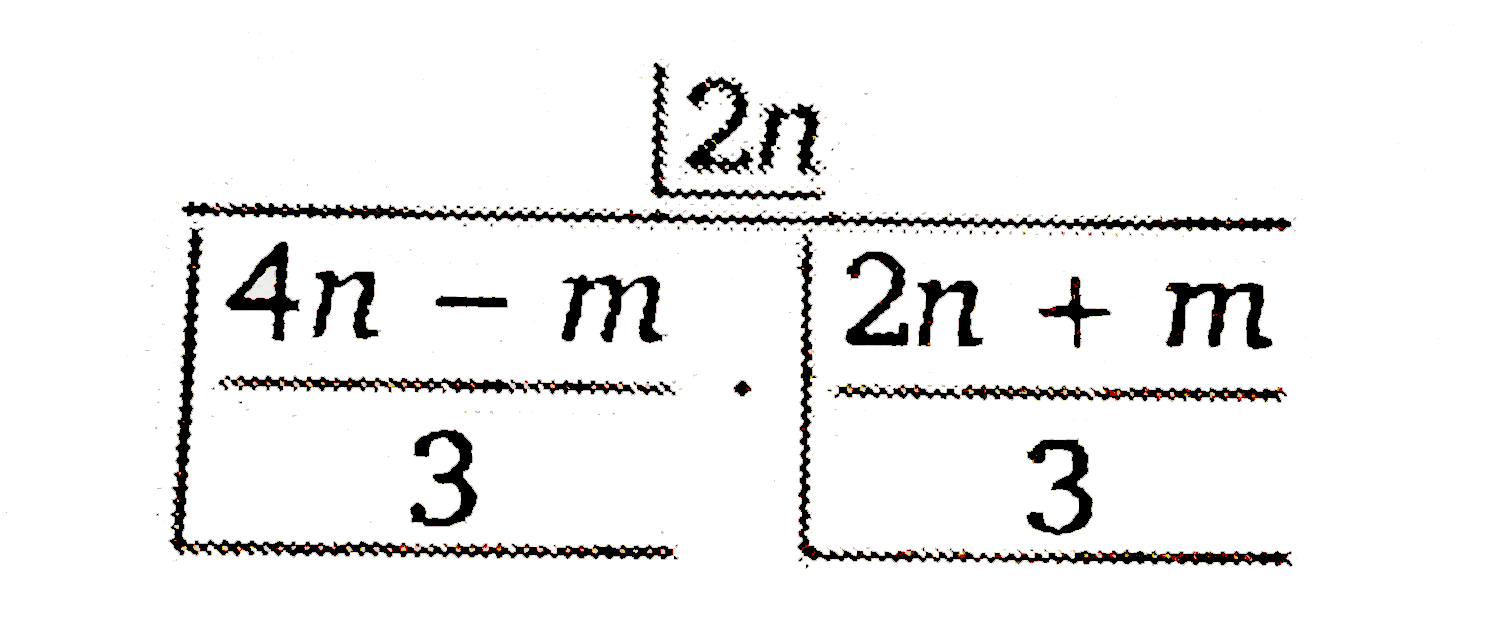The coefficent of xn in the expansion of (1+x22!+x44!+…)2
When n is odd is
2nn!
2n2n!
0
22xn!
The correct Answer is:b
To find the coefficient of xn in the expansion of
(1+x22!+x44!+…)2
when n is odd, we will follow these steps:
Step 1: Recognize the series
The series 1+x22!+x44!+… is the Taylor series expansion for cosh(x).
cosh(x)=∞∑k=0x2k(2k)!
Thus, we can rewrite our expression as:
(cosh(√x))2
Step 2: Use the identity of hyperbolic functions
Using the identity for cosh(x):
cosh(x)=ex+e−x2
We have:
cosh(√x)=e√x+e−√x2
Squaring this gives:
(cosh(√x))2=(e√x+e−√x)24=e2√x+2+e−2√x4
Step 3: Expand the expression
Now we need to expand e2√x and e−2√x:
e2√x=∞∑k=0(2√x)kk!=∞∑k=02kxk/2k!
e−2√x=∞∑k=0(−2√x)kk!=∞∑k=0(−2)kxk/2k!
Step 4: Combine the expansions
Combining these, we get:
e2√x+e−2√x=∞∑k=0(2k+(−2)kk!)xk/2
Step 5: Find the coefficient of xn
Now, we need to find the coefficient of xn in the expression:
14(e2√x+e−2√x+2)
Since n is odd, the terms 2k+(−2)k will cancel out for odd k, leading to:
14⋅0=0
Conclusion
Thus, the coefficient of xn in the expansion when n is odd is:
0
The series 1+x22!+x44!+… is the Taylor series expansion for cosh(x).
Using the identity for cosh(x):
Now we need to expand e2√x and e−2√x:
Combining these, we get:
Now, we need to find the coefficient of xn in the expression:
Thus, the coefficient of xn in the expansion when n is odd is:
Topper's Solved these Questions
- EXPONENTIAL AND LOGARITHMIC SERIESBOOK - OBJECTIVE RD SHARMA ENGLISHCHAPTER - EXPONENTIAL AND LOGARITHMIC SERIESEXERCISE - Chapter Test
20 Videos
- EXPONENTIAL AND LOGARITHMIC SERIESBOOK - OBJECTIVE RD SHARMA ENGLISHCHAPTER - EXPONENTIAL AND LOGARITHMIC SERIESEXERCISE - Section II - Assertion Reason Type
5 Videos
- ELLIPSEBOOK - OBJECTIVE RD SHARMA ENGLISHCHAPTER - ELLIPSEEXERCISE - Chapter Test
29 Videos
- HEIGHTS AND DISTANCESBOOK - OBJECTIVE RD SHARMA ENGLISHCHAPTER - HEIGHTS AND DISTANCESEXERCISE - Exercise
45 Videos
Similar Questions
Knowledge Check
The coefficients fo xn in the expansion of (1+x)2n and (1+x)2n−1 are in the ratio
A1:2B1:3C3:1D2:1
The coefficient of xnin the expansion of
(1+x1−x)2, is
View SolutionThe coefficient of xn in the expansion of (1+x)2(1−x)3, is
View SolutionThe coefficient of x4 in the expansion of (1+x+x2+x3)n is
View SolutionIf 'n' is a positive integer then prove that the coefficient foxm in the expansion of (x2+1x)2n is :

View SolutionIf 'n' is a positive integer then prove that the coefficient foxm in the expansion of (x2+1x)2n is :

View SolutionThe coefficient of xn in the expansion of (1+x+x2+...........)−n, is
View SolutionThe smallest natural number n, such that the coefficient of x in the expansion of (x2+1x3)n is .nC23, is
View Solution
